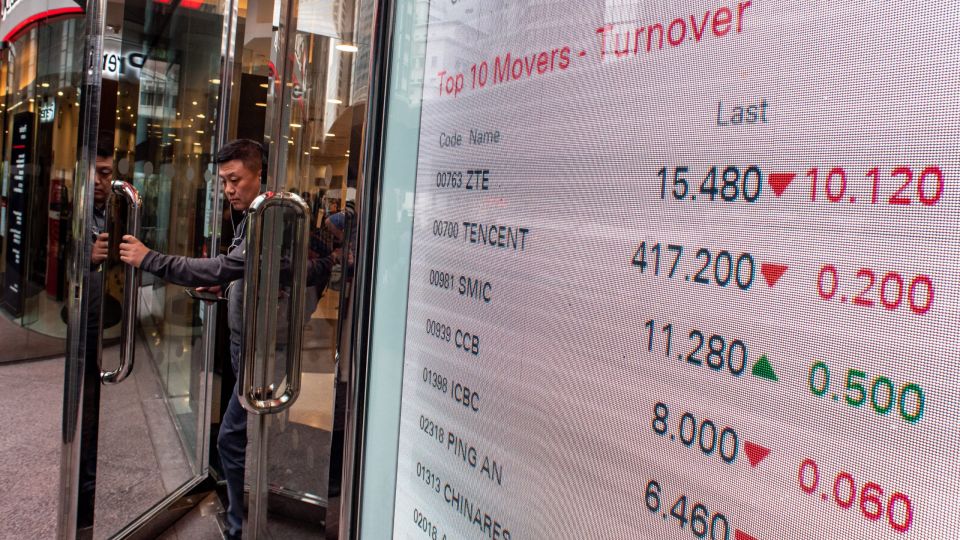May 16, 2019
World market confidence dampened by escalation, Chinese state media says.
Consultations between China and the United States are not a one-way street, and should be conducted amid a spirit of equality, State Councilor and Foreign Minister Wang Yi said on Monday in Russia.
Wang said that it is pointless for one side to blame the other, or even to absolve themselves from responsibility.
Wang stressed if one side is trying to place extreme pressure on the other, it will cause a legitimate counterattack.
“The measures from us are not only to safeguard China’s own rights, but to protect the basic rules of the current multilateral trading mechanism,” Wang said.
Wang made the remark in a joint news conference with his Russian counterpart Sergei Lavrov during his visit to the Black Sea coastal city of Sochi.
Experts warned that the rising US tariffs on Chinese imports risks a full-blown trade war, which will bring harm to both sides.
Major Wall Street stock indexes declined more than 2 percent on Monday, following China’s announcement of countermeasures in response to Washington’s latest tariff move.
Wei Jianguo, a former vice-minister of commerce, said US businesses and consumers will pay the cost amid hefty levies, which will eventually add significant pressure on the US economy.
The US government’s moves risk sparking a full-blown trade war with China, and China is fully prepared for any possibility, Wei said.
Economists at Goldman Sachs said in a research note that recent data showed the costs of Washington’s tariffs on China last year had fallen “entirely” on US businesses and households, with no clear reduction in prices charged by Chinese exporters.
The bank said that US consumer prices are higher, partly because Chinese exporters have not lowered their prices to better compete in the US market. In addition, some US producers “opportunistically” increased prices in response to protection from Chinese competitors, it said.
Foreign Ministry spokesman Geng Shuang urged the US government on Tuesday to consider the costs it would bear through raising tariffs.
He reiterated that China will never capitulate under any external pressure and hopes the US meets China halfway.
The US has no need to “worry about” China’s affairs, Geng said at a daily news conference. The country has made progress in improving its foreign investment environment and has become a popular investment destination, he said, citing the expansion of US-based Exxon Mobil Corp and Tesla Inc in the market last year.
Geng stressed that China welcomes foreign companies to increase investment in the market and will continue to establish a more stable, fair, transparent and predictable investment and business environment.
China and the US started tit-for-tat tariff exchanges in July, when the first round of tariffs on $34 billion worth of Chinese goods took effect. There has been strong opposition to the tariff measures from the US side.
Joe Biden, a Democratic candidate for US president, said on Monday, “The only people paying the price are farmers and working people right now”.
“Raising tariffs will hurt both the US and China economies, plus more importantly, they will hurt US farmers, consumers and businesses,” tweeted Republican Senator Chuck Grassley of Iowa, a major soybean-producing state.
The world’s two largest economies have intensified their consultations to iron out differences on existing trade issues. An 11th round of high-level talks was held in Washington on Thursday and Friday.
Wang said the Sino-US trade talks have made important and substantive progress thanks to efforts from both sides. Meanwhile the talks face some serious problems which need to be resolved.
The top diplomat said that as long as the negotiations meet the general direction of China’s reform and opening-up policy, adhere to China’s basic needs about high-quality development and serve the common interests of the Chinese and US people, the negotiator teams from both sides could have the capability and wisdom to settle their reasonable demands and eventually achieve a win-win agreement.
Wang said China insists on upholding national sovereignty, safeguarding the interests of its people and defending national honor when negotiating with any country.
According to the General Administration of Customs, trade between China and the US in the first four months stood at 1.1 trillion yuan ($160 billion).


